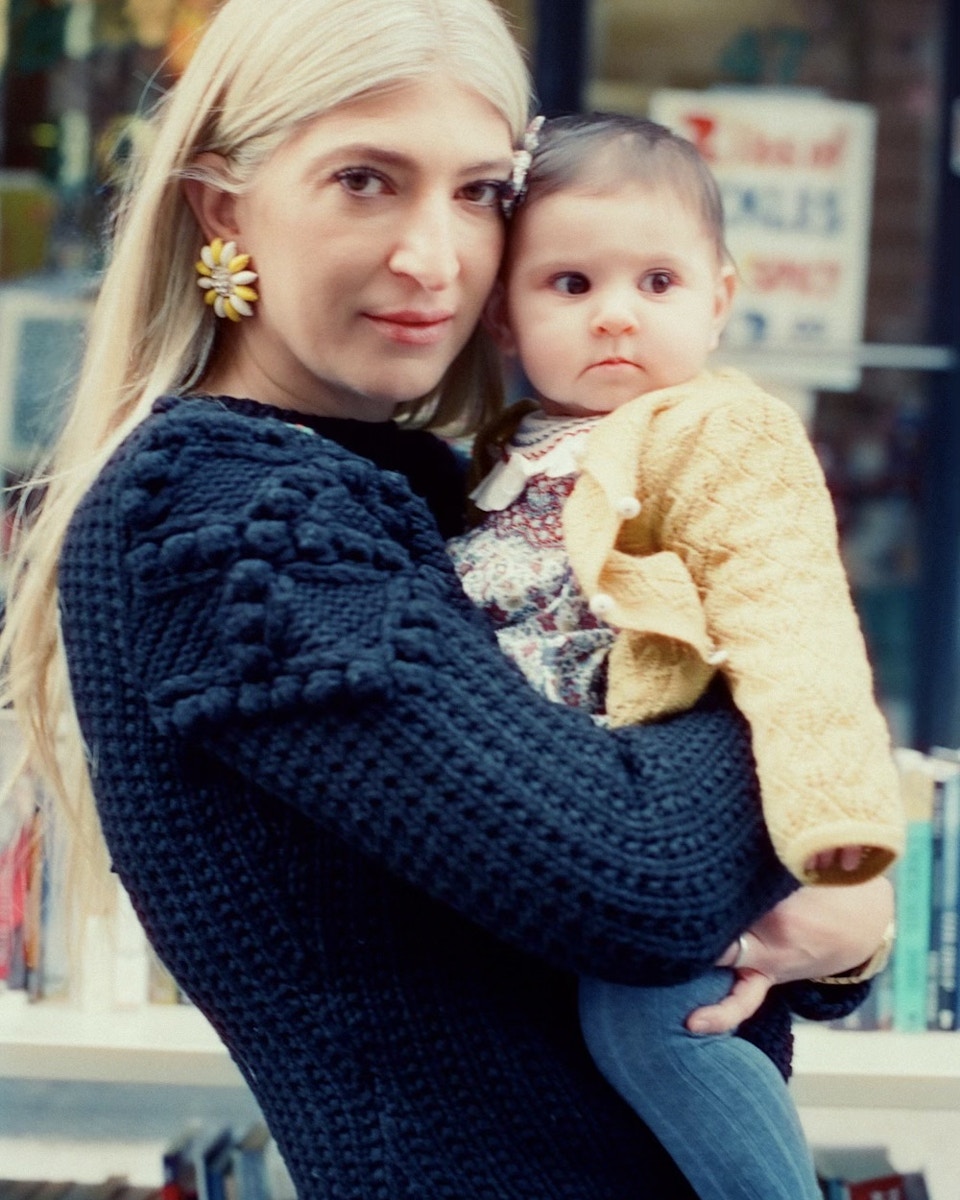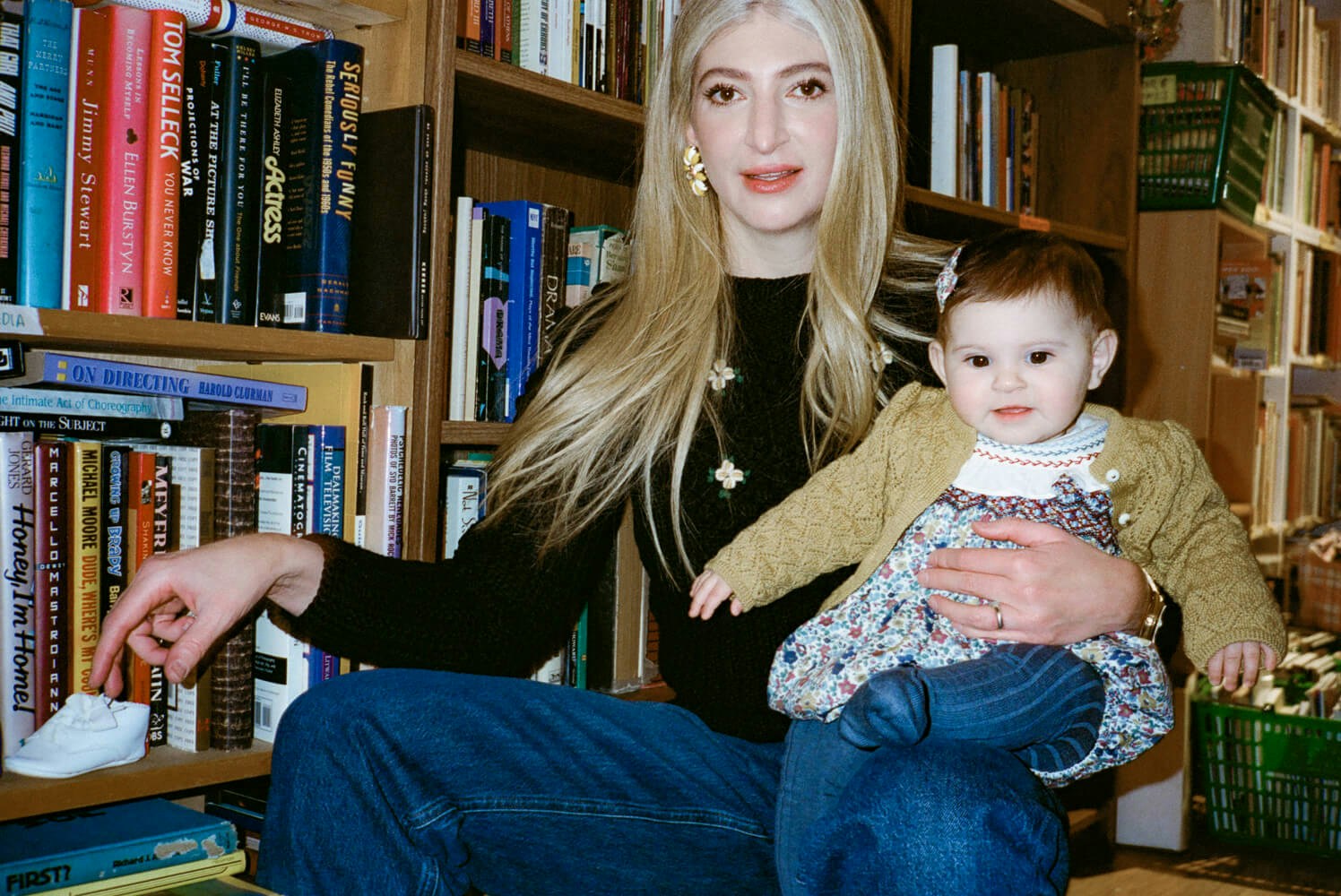
Getting Sticky With: Sarah Hoover
Words by Anna Deutsch
Photos by Jen Steele
Sarah Hoover’s debut book, The Motherload: Episodes from the Brink of Motherhood, has made quite the splash. In it, the writer and former Gagosian gallery director doesn’t hold back: “I felt like I lost my entire life and identity to this ugly baby in one day.” The memoir chronicles her pregnancy, birth, and postpartum experience alongside reflections on her youth in Indiana and young adult years in New York. It also delves into her relationship with her own mother and with her husband, artist Tom Sachs, towards whom she develops spiteful rage during her descent into severe postpartum depression.
From her traumatic birth to her feelings of apathy toward her new baby son, Hoover shares her motherhood journey with jarring honesty, painting a stark contrast between her outwardly lavish lifestyle and her painful inner turmoil. While the specificities of her life and experience are not necessarily relatable, it’s the visceral depth with which she shares her ugliest truths that conjure a genuine tenderness and make her book so gripping.
“The thing about shame is that you're alone in it, and once one other person is honest with you, it’s so transformative,” said Hoover when we sat down to discuss not just the book, but what’s come after, including a strong bond with her son Guy, 7, and the birth of her daughter, Fred, now 10-months. While her second pregnancy and childbirth experience were not without struggle, navigating it on the other side of PPD allowed Hoover to tap into a new level of joy and has reinforced her desire to help others by sharing her truth.
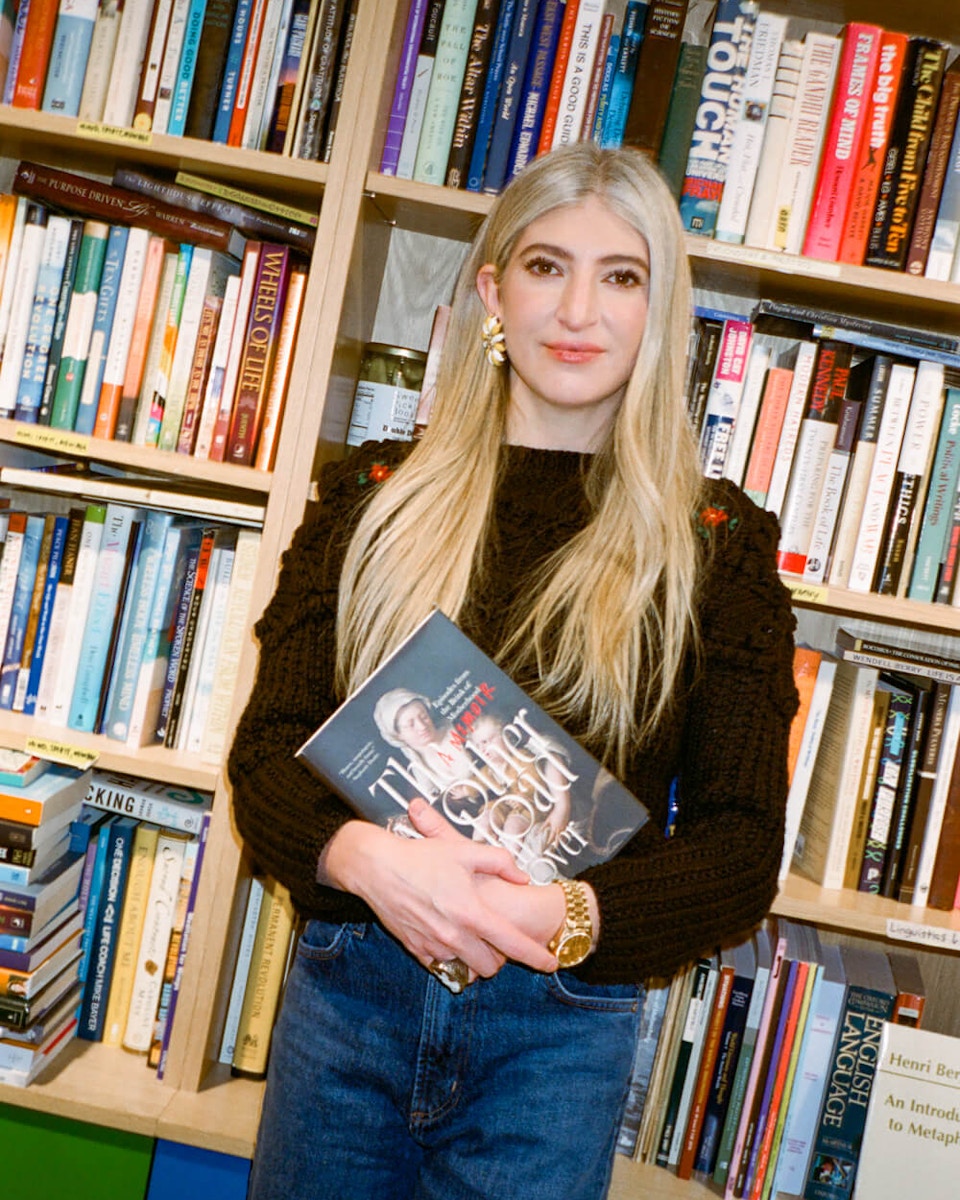
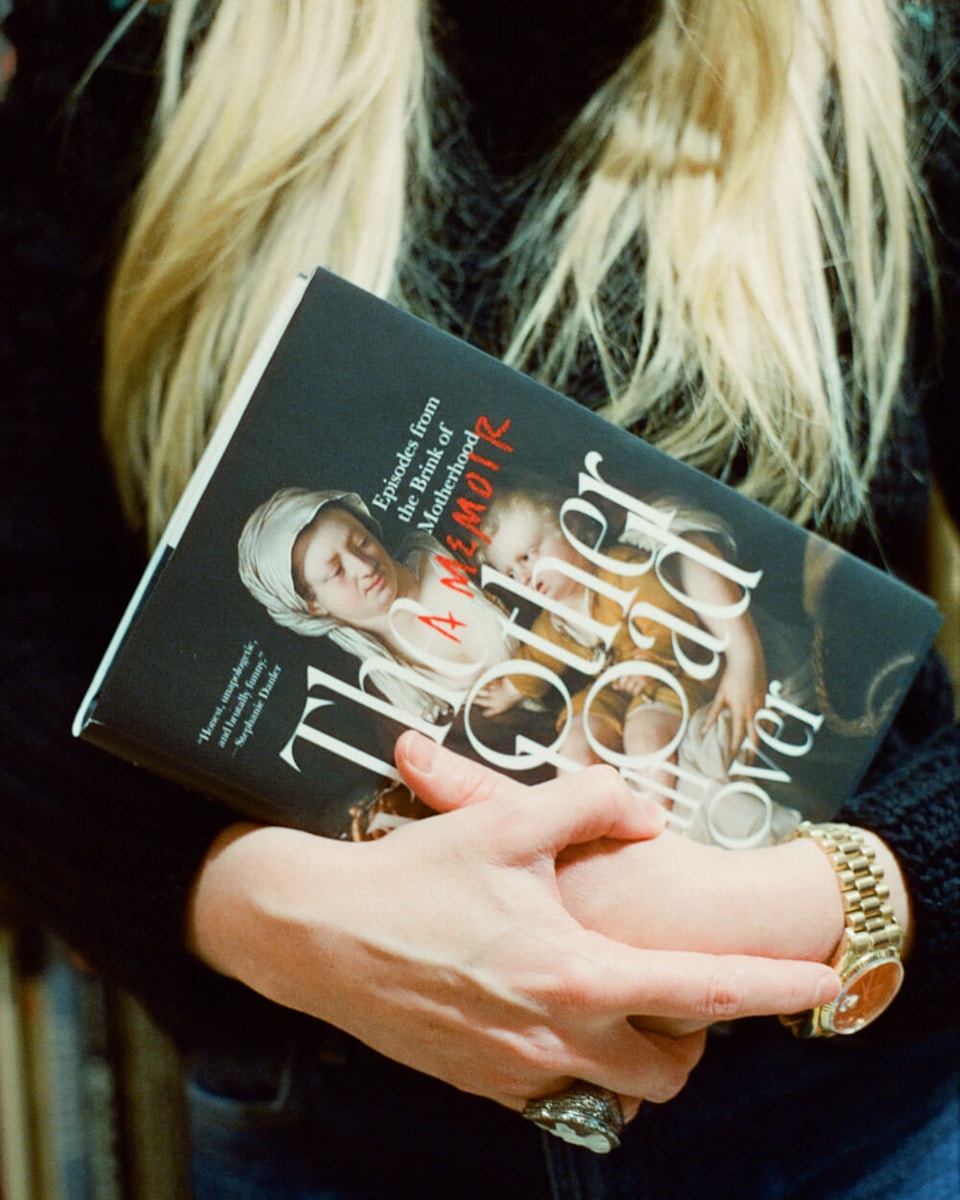
Baby two: You’re over 35 now…
Everything from getting pregnant to the birth and after was completely different the second time around. My miscarriage highlighted the fact that I did actually want another kid. I was just really disturbed by the loss even though I wasn't super far along. After that I was determined to try, especially knowing I was older. And I just couldn't get pregnant. I was peeing on ovulation sticks and doing all that annoying stuff, and I just wasn't getting pregnant. I went to a fertility doctor, and she was like, yeah, you're over 35 now—things get considerably more difficult. I'm kind of obsessed with the paradox that there is this very real biological fact that it does get really hard for women after 35, and yet nobody should be having babies in their twenties. Of course, you should have a baby at 35 or 40, because it's when you’re finally financially independent. And it's so hard to reach financial independence as a woman. There's so much stacked against you.
Men don't get it. Women start out making so much less and are not given tools to negotiate. We’re not given tools to be demanding. And once you do have a baby, it's often really damaging to most people's careers to step away. All that fighting for what you deserve is exhausting, and I think women get really tired of it and are like, ok, I’m just going to only do my job. It really chips away at you. For all those reasons and more, having a baby doesn’t make sense until you’re older. And unfortunately, biology has not caught up with the culture.
I see so many women in their thirties in a panic because their choices are rapidly dwindling and there's nothing you can do. I remember saying to my fertility doctor, but I'm extremely healthy! I work out every day, that doesn't impact the health of my eggs!? And she was like, no, nothing impacts the health of your eggs. When you’re over 35 their genetic material starts to deteriorate and there’s less of them that can make a viable embryo. It really shocked me because I feel like I put so much energy and resources into my longevity, health wise, and to know that it doesn't really help with fertility is a mindfuck.
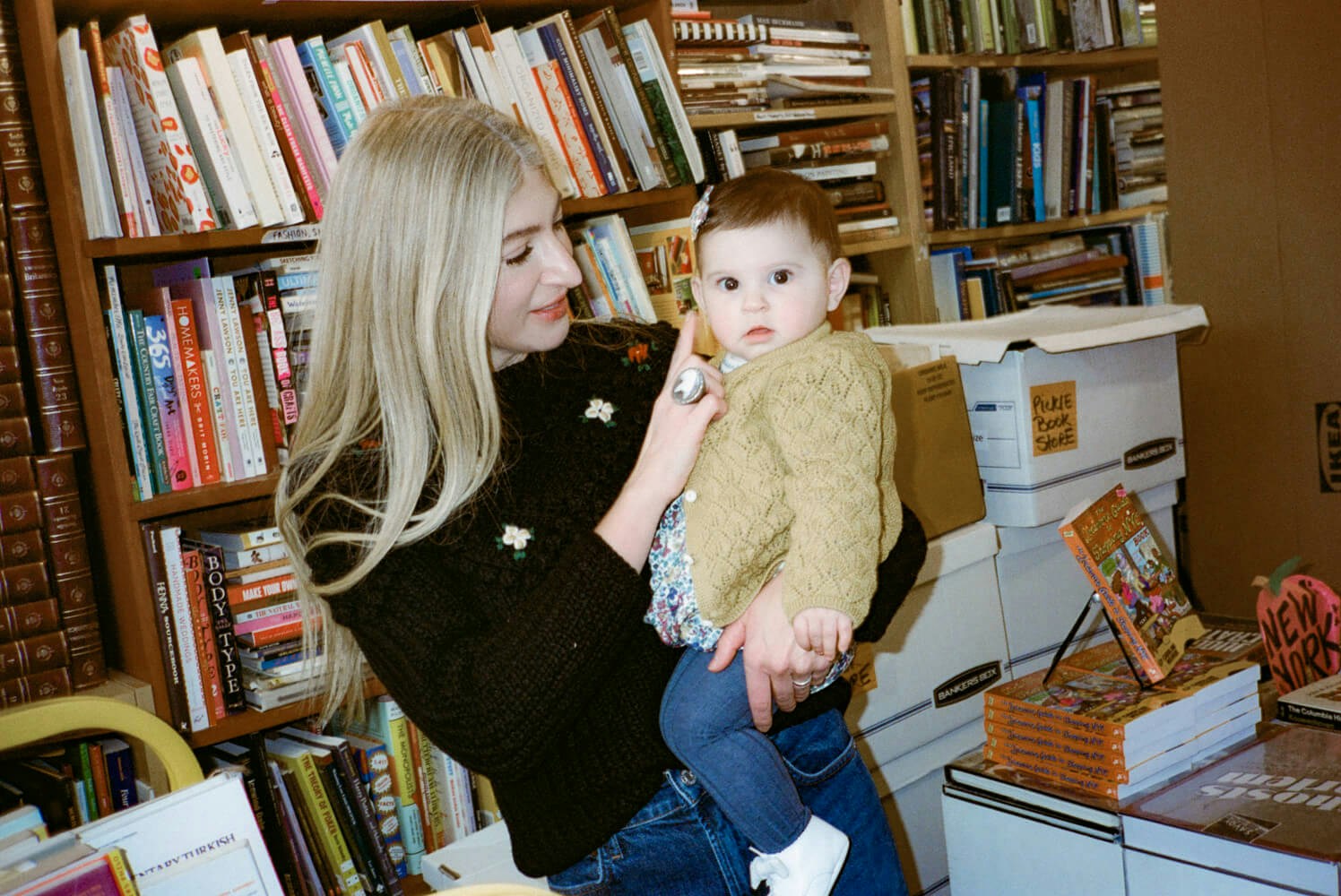
Fertility for Dummies
I ended up doing a bunch of IUIs. Basically, you go into the doctor every day, they stick a probe in your pussy, tell you when you're about to ovulate, and your husband comes in and jerks off in a cup. It’s very romantic. They time it perfectly and can kind of tinker with it to get the really fast sperms isolated and put those ones in your body. They give you a shot the night before to make a lot of your eggs drop out at once, instead of just one. You know, no one has ever explained fertility to me fully, including my doctor. I had to google the shit out of it and go on Reddit and figure things out by myself. I’m sure by now there’s books, Fertility for Dummies? But I didn't have them. Anyway, there's all these ways you can tinker with IUI to make the chances of success better. I did a bunch of them and still couldn't get pregnant, and I was like, oh my God, I'm just blowing through money. And it was stressful. I took a break from it, but almost immediately felt that I urgently wanted a second baby. My son was getting older, time was passing, and I was getting closer to 40. I decided to do a full IVF cycle. IVF is arduous, and I was kind of shaken by the vulnerability of it. You're paying so much money and not everyone's insurance covers it. And you go in every morning for monitoring so they can see exactly where you are in your cycle and tell you what shots to give yourself that night so that they can really plot your cycle and give you the best chance of success. Fortunately, my first round of IVF was successful and I was able to get pregnant for the second time.

"You know, no one has ever explained fertility to me fully, including my doctor. I had to google the shit out of it and go on Reddit and figure things out by myself. I’m sure by now there’s books, Fertility for Dummies? But I didn't have them."
What a difference having a grip can make
I had a horrible pregnancy and was on medical bed rest for four months. I had a hematoma on my uterus that just wouldn't stop bleeding, and you can lose so much blood that you can't support a fetus. It was hard, but luckily, I have a great support system. I also had really bad morning sickness with both pregnancies, this time until I delivered. Then halfway through the pregnancy I got really itchy with no other symptoms. It was the middle of winter so I got a new humidifier, new sheets, and I changed laundry detergent. I finally told my doctor because it was keeping me up at night. It seemed doubtful it was preeclampsia because my blood pressure was fine, so she tested me for one rare weird thing. Turns out I had the one weird thing. It's like a liver condition where your body doesn't make enough bile for you and the fetus, and it's fatal at 37 weeks. I was 36 weeks and four days. I had the baby the next day. Despite all the difficulties, I kept a very level head throughout pregnancy and postpartum. I went back on antidepressants, I was in therapy through all of it. All this to say is that pregnancy, even with all of the knowledge that I had including the research for my book, can still be so hard. But when you have the right support and you're able to have perspective, it is better. I was not depressed. I was never traumatized. I had a grip the whole time.
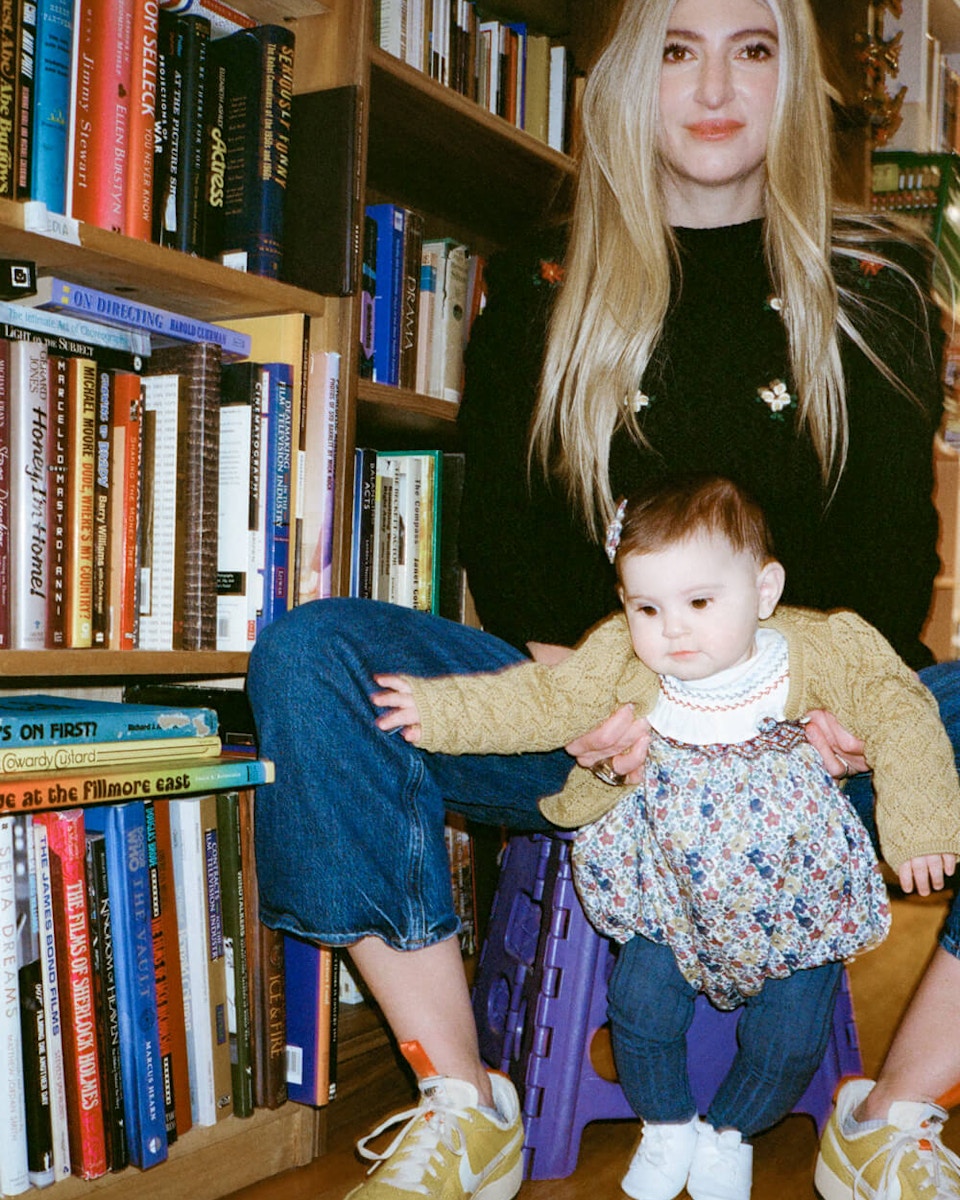
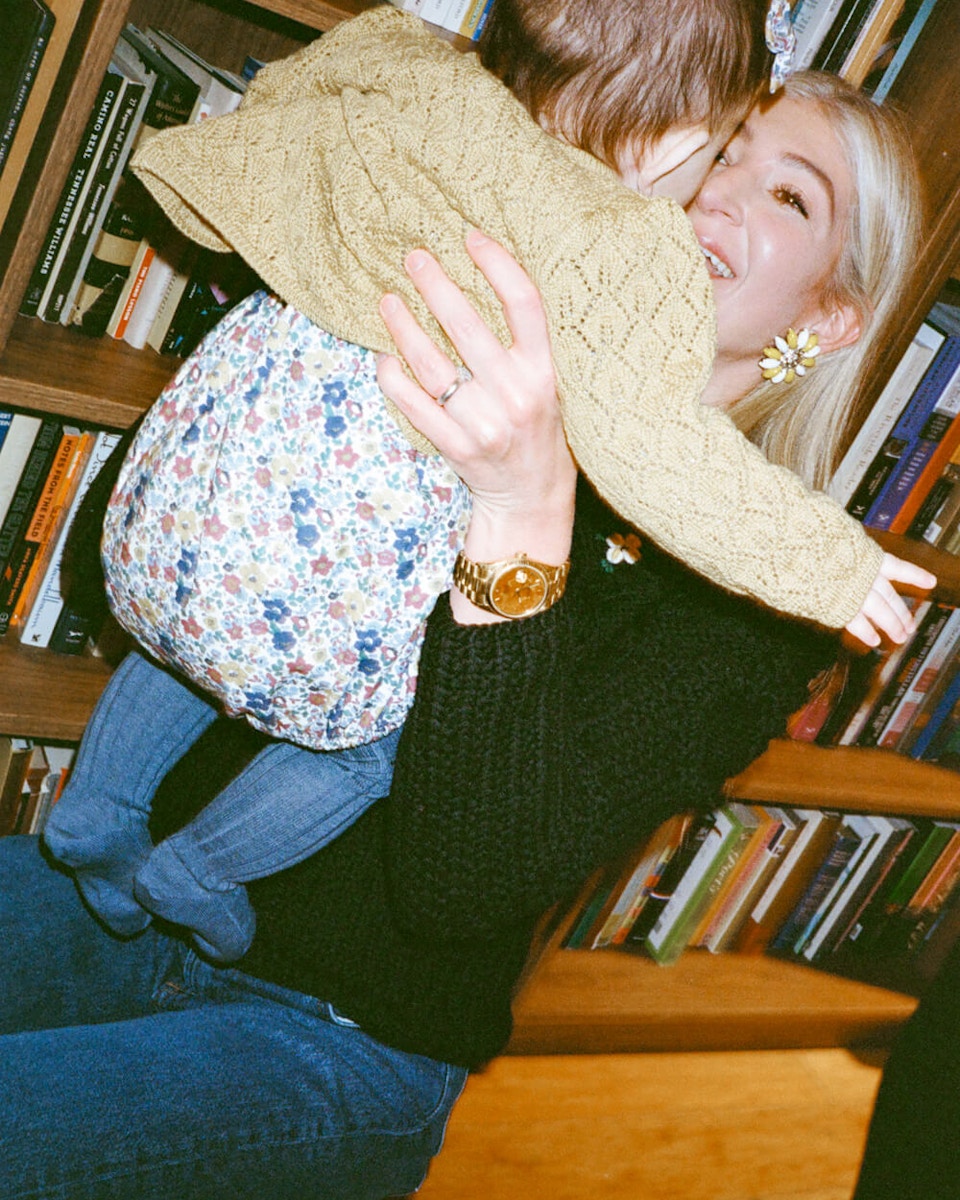
Birth is a war every time
When I got a new OBGYN, I went to her with a list of requirements for the way my care was going to go down. She was like, I've never done this before, but I'll absolutely try. I detailed that list at the end of my book, but it was even more defined. She applied those criteria for all my appointments. She would narrate what she was going to do, anticipate the pain level, and I didn’t have to put my feet in stirrups if I didn't want to. I felt really safe. I had a doula this time, who was wonderful, though I don't even necessarily think I needed her because I know how to advocate for myself now. The first time around, I had no idea. Of course, there was pain and tough moments. Birth is a war every time—but it was also beautiful and special and the opposite of the last time. Women are literally portals to this other dimension where we create life, and it sounds like woo woo - I'm the least woo woo person in the fucking world – but there is something miraculous about creating a healthy baby. It can be so violent, but at its core it's so beautiful.

"Women are literally portals to this other dimension where we create life, and it sounds like woo woo - I'm the least woo woo person in the fucking world – but there is something miraculous about creating a healthy baby. It can be so violent, but at its core it's so beautiful."
Estrogen withdrawal (it’s a thing, apparently)
I was elated immediately. I didn't know the sex of the baby, so when they pulled her out and announced that it was a girl, I mean… my doula took pictures of me bursting into sobs. I was so emotional. I mean, did I look at her and feel an immediate explosion in love? Not really. But I felt very connected and very curious and very like, holy shit, I can't believe I made this baby. This time around I didn’t want to leave my house, I just wanted to nest with my baby. Last time I was like, where's the party? I got to get back to my life. I want to go to the club! Anyway, I was beyond happy. I had this beautiful healthy baby. I couldn't wait to have the perfect meal and celebrate with my husband. It's so romantic when you have a new baby! Unfortunately, around four o'clock that afternoon, I started violently puking and I puked so violently for almost 10 days and had to go back to labor and delivery three times. They think it was an incredible estrogen withdrawal. I had all these weird hormonal symptoms that are common in women in menopause and perimenopause. I remember sobbing to my husband and being like, something is so fucking wrong, and if I die seven days after I finally had this beautiful baby... It felt like I was going to die. Again, all of that sucked, but I wasn’t traumatized from it. There's such a difference between hard things happening and you being able to mentally handle it and hard things happening and it ruining you.
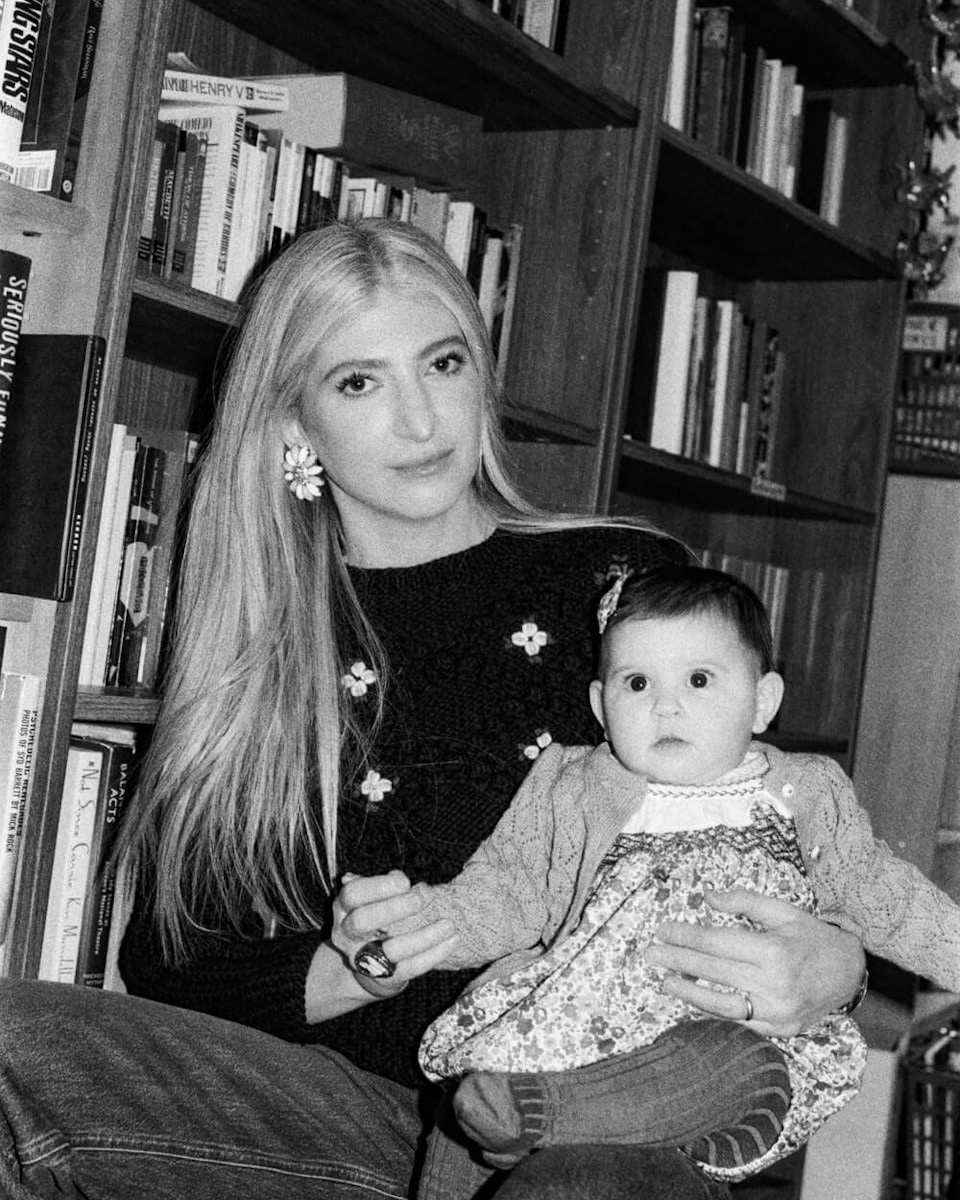
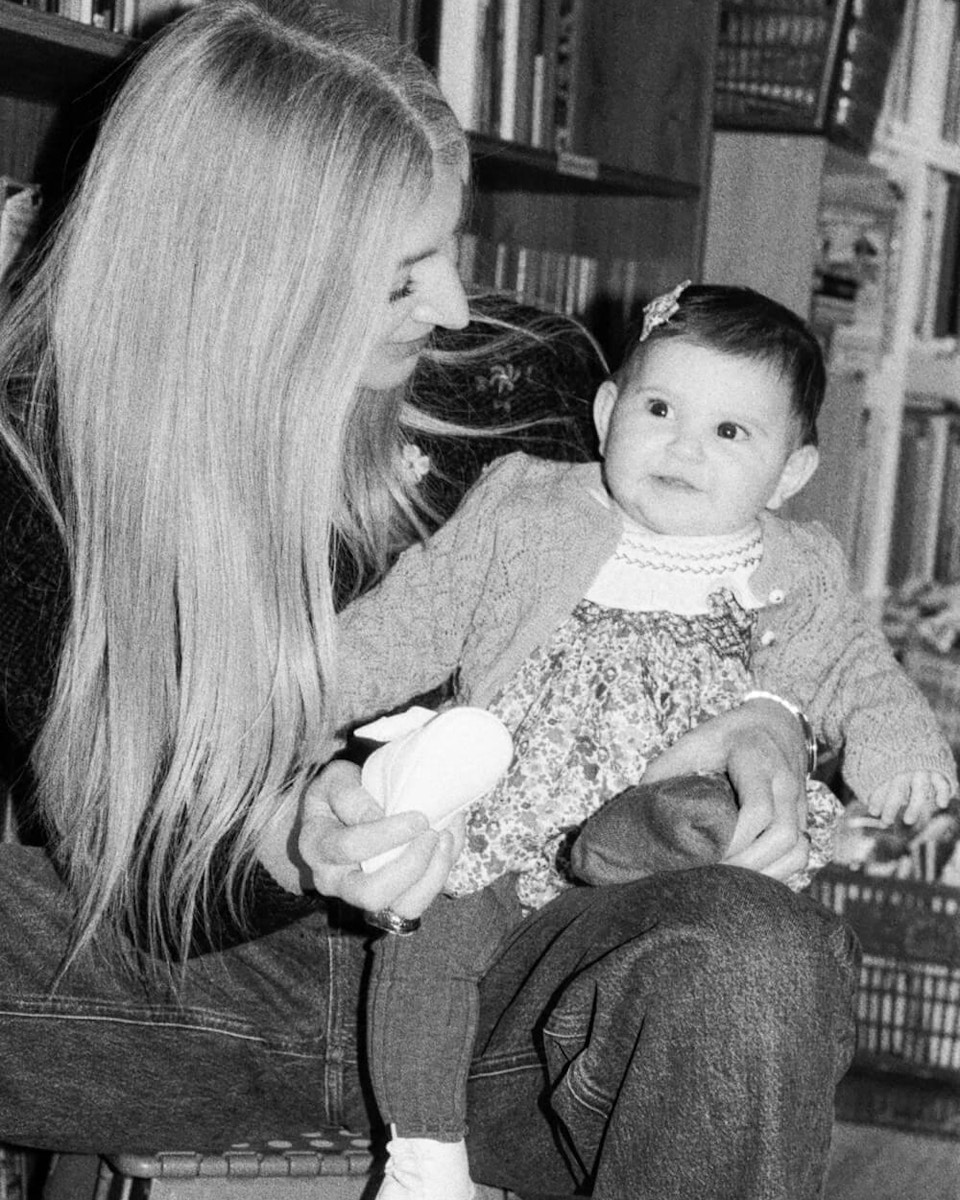
Putting pen to paper
I adopted a journaling practice when I was in therapy after having postpartum depression. I did The Artist’s Way, and a tenant of that practice is writing first thing when you wake up. I had been doing that for a few years and I had gotten a little bit more into the swing of being honest in that writing. When I reread my journal entries postpartum the first time, I was so rage filled, so unbelievably angry, so aghast and bewildered. The one from the first day home from the hospital is so clinical and detached. It's like, here’s the story of my labor: At 7:04AM this happened, at 9:03AM this happened. And as I went deeper and deeper into this rageful depression, the entries became absolutely unhinged. At first, I was nervous I’d be so triggered, but I was like wait this is actually funny because I'm so unhinged—I was laughing at myself like, holy shit bitch, you are nuts. I made the decision to try and write something based on it. I was taking a writing class at the time, and as every writing class will tell you, just get it on the page and you can always edit later. When you're writing, you don't want to be self-editing, right? And when I would read little excerpts in class for the workshop, people responded really well, and people would even laugh. And I was like, great, this is fucking funny. Pretty soon into COVID quarantine I left my full-time job to work on it. Once I put a proposal together and sold it and I was like, okay, well now I have to actually write this thing.
Memories are not a database
I made a very conscious decision that I could not write the book if I could not be emotionally honest, because I know how freeing it has been for me when others have been totally honest and shared their shame. The thing about shame is that you're alone in it, and once one other person is honest with you, it’s so transformative. I think the specificity of my own experience actually makes it more relatable to people because they can suspend the idea that we're going to have matching experiences, but appreciate how much detail I was willing to share. Tom and my mom were really supportive and both kind of gave me their own version of the same thing, which was like, this is your art—you get to make it however you want. And my mom always says, memories are not a database. Our memories of the same event are going to look really different no matter what, and you have a right to your own story. I have been very lucky that my family has been very supportive of this journey. I mean, I think they're just really glad that I didn't die from a psychosis. They're like, go out there, tell your story, help other people if you can.

"The thing about shame is that you're alone in it, and once one other person is honest with you, it’s so transformative."

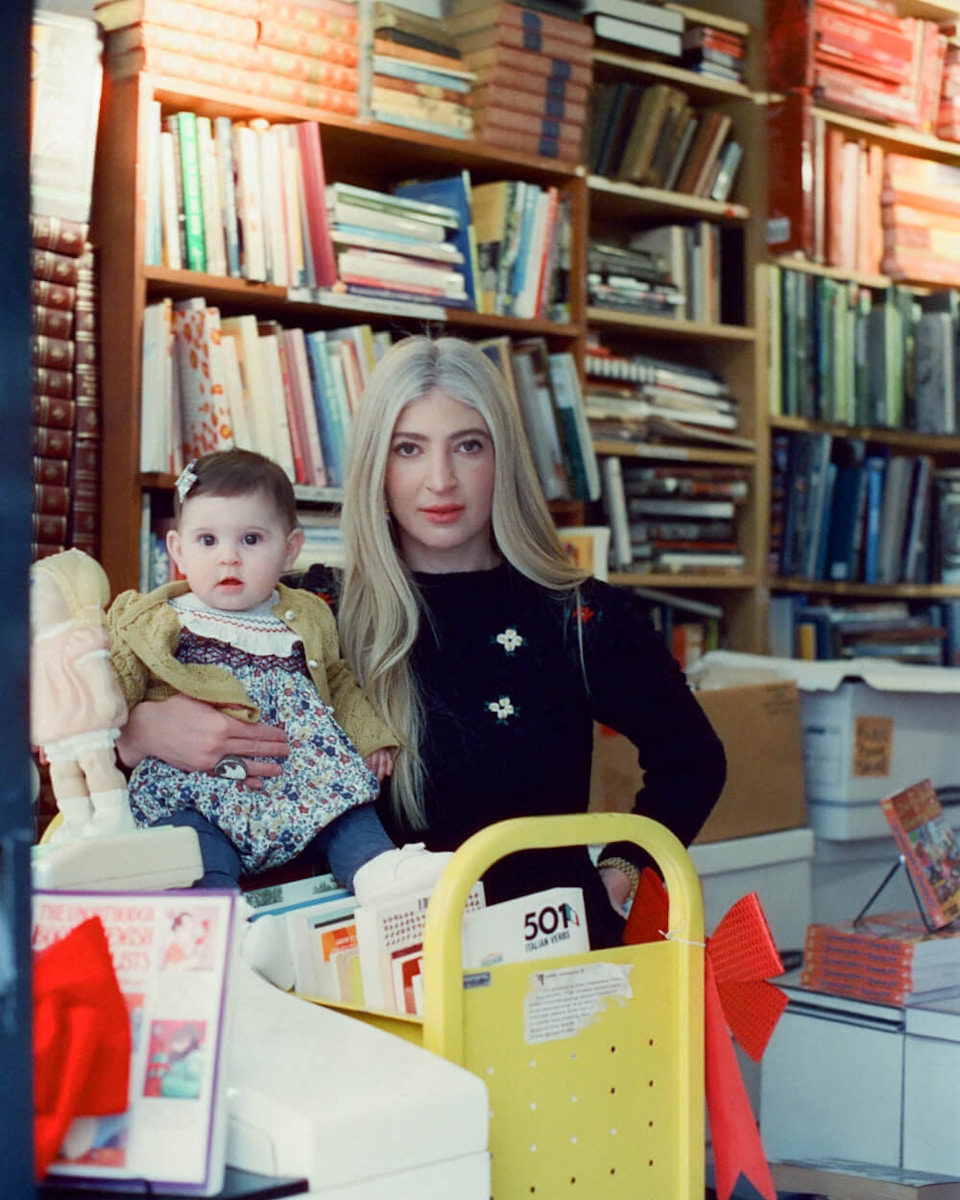
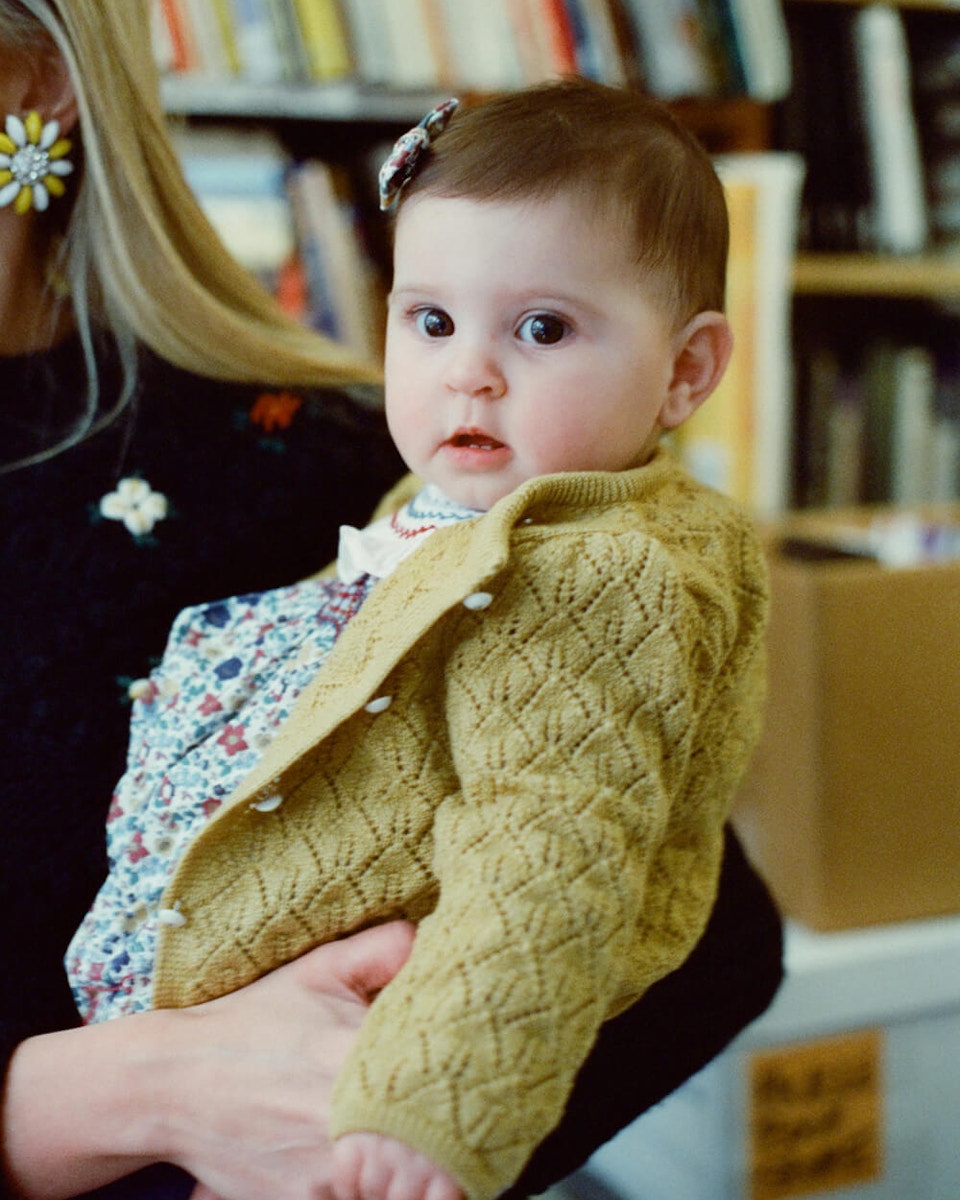
You have a right to say no… and to complain!
If you're pregnant, I think you need to get really clear on what makes you feel safe in a medical scenario. For me, that is not feeling pain and feeling like I'm in control over my own body. You can't be in control over the situation, obviously, and you're not a doctor, so you can't be in control over the medical aspect of what's happening. But you have a right to physical safety and you have a right to control over your own body in any scenario. You have a right to say no. You have a right to your own body and you have to be very clear about those boundaries. I was not able to advocate for myself and am not good at confrontation. I can barely return something I bought. How am I going to confront a doctor in a hospital? The first time I should have set aside resources and had a doula. I said to my doctor, can I have a doula? She was like, you can if you want, but I'm the boss. And that should have been a red flag. You have to be very clear on what makes you comfortable and what you are willing to tolerate. And you have to get a security guard, a doula or whoever, if you are worried that you are unable to advocate for yourself. Also, I think everyone, pregnant or not, should find a way to find a good therapist. I know it's really, really expensive and not everyone has health insurance that covers it or health insurance at all, but if there's any part of you that can afford therapy even once a month, it's so important because it gives you language to understand your own feelings and to communicate effectively with other people. I did not know I was depressed when I was pregnant the first time. I did not know I had been depressed earlier in my life because I was not in a therapy practice where someone could help me understand that. When you’re postpartum, you have to know that every phase ends and when you're freaking out and can't believe this is life now, you have to know that it ends. And lastly, you have to complain! You have to say, this sucks when it sucks and let it leave your body. Complaining is the way that you develop language to describe what is really hurting you in your life, what's harming you. And it may not be justified. That's totally different. What’s important is developing language to tell other people what's bothering you or you'll never be able to identify that you're mentally unwell. And people can call you on it and be like, all you've done is complain. Now go fix it. That's fair too. But it starts with not being so ashamed. I spent a full year so scared to complain that I couldn't even be honest with myself that I was absolutely miserable and hating my life to the point where I wanted to end my life. Yes, there are steps beyond complaining that you also have to take, but none of that can happen until you're willing to be like, wait, I actually don't like this. It doesn't work to stay silent. It just doesn't.
Special thanks to Sweet Pickle Books

"I spent a full year so scared to complain that I couldn't even be honest with myself and was hating my life to the point where I wanted to end my life. It doesn't work to stay silent. It just doesn't."
